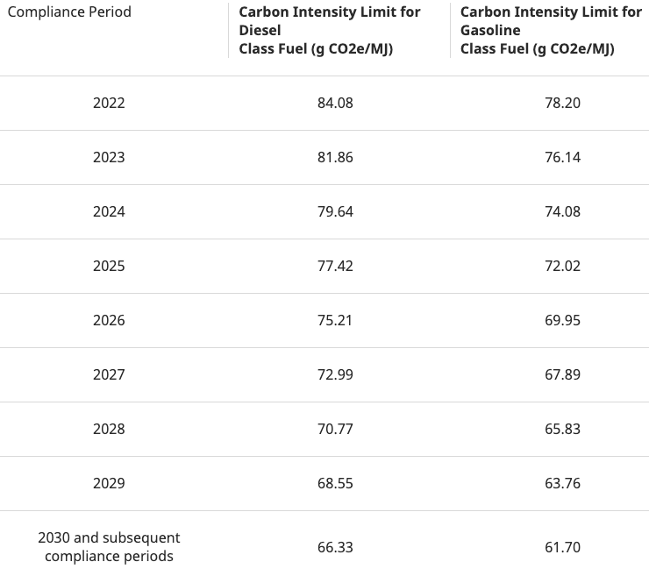British Columbia Low Carbon Fuels Regulation (2024)
Life Cycle Associates helps companies get certified and comply with British Columbia’s Low Carbon Fuels Regulation, including certification for new pathways. Effective January 1, 2024, the Regulation replaces the previous policy that was established in 2008, and now includes sustainable aviation fuel (SAF) requirements. Similar to other low carbon fuel standards, the British Columbia Low Carbon Fuels Regulation sets increasingly stringent carbon intensity (CI) requirements for renewable fuels in the Canadian province, as shown in the reduction schedule.
British Columbia Low Carbon Fuels CI Reduction Schedule

The regulation requires sustainable aviation fuel (SAF) to comprise at least 1% of jet fuel starting in 2028, increasing to 2% in 2029 and 3% in 2030. The regulations include a CI reduction requirement for SAF that phases in at 2% in 2026, 4% in 2027, 6% in 2028, 8% in 2029 and 10% in 2030.
British Columbia’s LCFS is part of the broader, pan-Canadian, Clean Fuel Regulation (CFR). The CFR is designed to deliver up to 26 million tonnes of GHG emissions reductions in 2030. Provinces across Canada each have various approaches through renewable fuel mandates or clean fuel standards. British Columbia has both, a minimum content requirement coupled with the LCFS that aims to achieve a 20% reduction in the carbon intensity of fuel by 2030.
Carbon Intensity (CI) Application Support
We work with customers to calculate fuel pathway carbon intensities (CI) and document these applications with the government of British Columbia, including the new SAF requirements. Using our extensive experience with GHGenius, we represent customers in these discussions and help develop current and new fuel pathway strategies and minimize pathway carbon intensities.
Questions
Do you have questions about the British Columbia Low Carbon Fuels Regulation as it applies to your specific business case?
